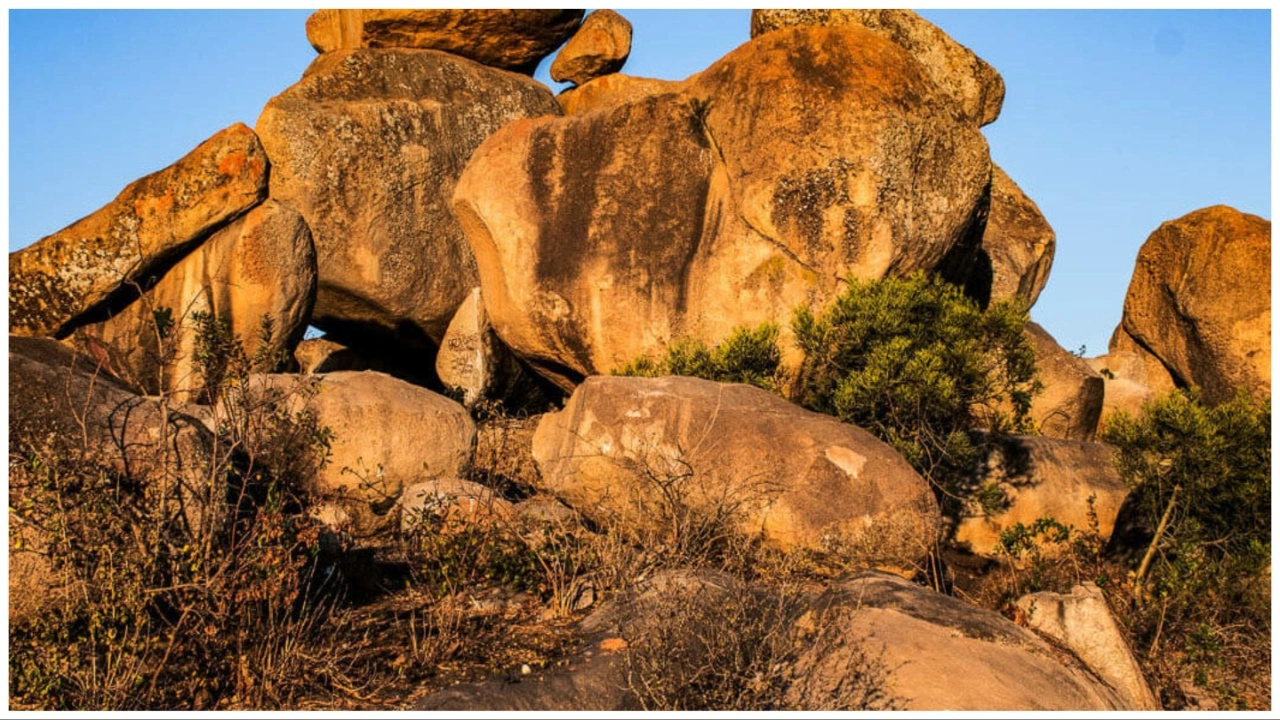Introduction
Nyanga Botanical Gardens, nestled in the north of Zimbabwe’s Eastern Highlands, is a captivating destination with its diverse flora, mesmerizing landscapes, and rich history. This article serves as a detailed guide for both Zimbabweans and international enthusiasts looking to uncover the wonders of Nyanga Botanical Gardens.
The Weather in Nyanga Botanical Gardens
Nyanga experiences a temperate climate with distinct seasons. Summers, from September to March, are warm, requiring light clothing and sun protection. Winters and autumns, lasting from April to August, demand warmer attire, especially during the evenings. Tourists are advised to wear earthy colors and avoid bright clothing. Binoculars, cameras, hiking shoes, and wildlife reference materials are recommended for an optimal experience.
Location and GPS Coordinates
Situated in the heart of Nyanga National Park, the gardens are surrounded by lush hills, dense pine and wattle forests, and abundant plant life. The coordinates approximately place it at 18.2336° S latitude and 32.7328° E longitude.
History of Nyanga Botanical Gardens Zimbabwe
Nyanga National Park, established in the Eastern Highlands, boasts the highest point in Zimbabwe, Mt. Nyangani (2,592m), and the country’s highest waterfall, Mutarazi Falls (762m). The park’s terrain features green hills, acacias, msasa trees, and diverse proteas. Nyanga is a haven for birdwatchers, with over 300 species, including migratory birds.
Size & Population
Nyanga’s charm lies in its unspoiled nature, offering tranquility away from urban bustle. While precise population statistics are not readily available, the area’s appeal lies in its natural beauty and vibrant biodiversity.
Distance and Travel
- Distance from Harare City Centre to Nyanga Botanical Gardens: The journey begins in Harare, where travelers take the A3 towards Mutare. After reaching Rusape, turn left onto the A14 towards Juliasdale, leading to Nyanga National Park. The distance from Harare to Nyanga is approximately 265 kilometers.
- Travel Time from Harare to Nyanga Botanical Gardens: The road journey takes around 4-5 hours, depending on traffic and road conditions.
- Distance from Nyanga Botanical Gardens to Nyanga: Once in Nyanga, the National Parks office is reached by turning right just before the Nyanga village.
- Travel Time from Nyanga Botanical Gardens to Nyanga: The travel time within Nyanga depends on specific locations and attractions. Local maps or guidance from the National Parks office can assist visitors.
Nyanga Botanical Gardens Town Council Contact Details

image credit: Wonderful Zimbabwe
For inquiries or assistance, visitors can reach out to
Contact Us ; Harare Cell: +263 787 232 403.
VOIP: +263 712 734 359
Schools in Nyanga Botanical Gardens
There are several schools in the surrounding area of Nyanga that you might be interested in:
- Mountview Preparatory Primary School: This private school caters to learners from Grade 1 to 7 and offers a holistic education based on the Cambridge International Primary Curriculum. It’s located approximately 10km from Nyanga Botanical Gardens.
- Nyangani Secondary School: This government-run school offers secondary education from Forms 1 to 4, with a focus on academics, sports, and cultural activities. It’s situated about 15km from the gardens.
- Nyamhuka Primary School: Another government-run primary school, Nyamhuka caters to learners from Grade 1 to 7 and provides a basic education in line with the national curriculum. It’s roughly 20km from Nyanga Botanical Gardens.Also Read: Domboshawa Rocks: Unveiling Zimbabwe’s Geological and Cultural Marvel
Colleges and Universities:
There are no colleges or universities located directly within Nyanga Botanical Gardens, or even within the immediate vicinity of the gardens themselves. It’s primarily a natural area focused on showcasing indigenous and exotic plant species.
However, depending on what you’re looking for, there are various higher education options in the wider Nyanga district or nearby towns:
Nearby Towns:
- Mutare City: This city, approximately 85km from Nyanga, offers several options:
- Manicaland State University of Applied Sciences: A public university focusing on various technical and vocational programs.
- Africa University: A private, pan-African university offering undergraduate and postgraduate degrees in various disciplines.
- Zimbabwe Ezekiel Guti University: A private university offering theology, education, and business-related degrees.
Lodges in Nyanga Botanical Gardens Zimbabwe
There are no lodges located directly within Nyanga Botanical Gardens itself. As it’s mainly a natural area dedicated to showcasing indigenous and exotic plants, it doesn’t have any permanent structures like lodges within its boundaries.
However, the good news is that Nyanga National Park, where the gardens are located, offers a variety of excellent lodging options in the surrounding area. Here are some great choices depending on your budget and preferences:
Luxury Lodges:
- Montclair Casino Hotel & Resort: This luxurious hotel offers stunning views of the Eastern Highlands, spacious rooms, multiple restaurants, a casino, and various leisure activities like tennis and horse riding. It’s situated approximately 30km from Nyanga Botanical Gardens.
- Troutbeck Resort: Nestled amidst lush gardens and trout-filled streams, this resort features comfortable chalets, cottages, and suites, a swimming pool, tennis courts, and a variety of dining options. It’s about 25km from the gardens.
- Nyangani Lodge: This intimate lodge offers personalized service, cozy cottages with fireplaces, and breathtaking mountain views. It’s located just a few kilometers away from the gardens, making it the closest luxury option.
Mid-Range Lodges:
- Nyanga Hill Hotel: This hotel offers comfortable rooms with balconies overlooking the mountains, a restaurant, and a bar. It’s situated within Nyanga National Park, approximately 20km from the gardens.

image credit: Wonderful Zimbabwe
Things to Do in Nyanga Botanical Gardens Zimbabwe
- Bird Watching: With over 300 bird species, Nyanga is a paradise for bird enthusiasts. The migratory birds between November and April add to the excitement.
- Fishing: The perennial streams stocked with rainbow trout offer a unique fly fishing experience. Bream fishing is available at Udu Lake.
- Wildlife Viewing: Nyanga is home to diverse wildlife, including zebra, antelope species, leopards, hyenas, and occasional lions from Mozambique.
Trivia
Nyanga Botanical Gardens is part of Nyanga National Park, known for its captivating landscapes, diverse plant life, and vibrant bird species.


